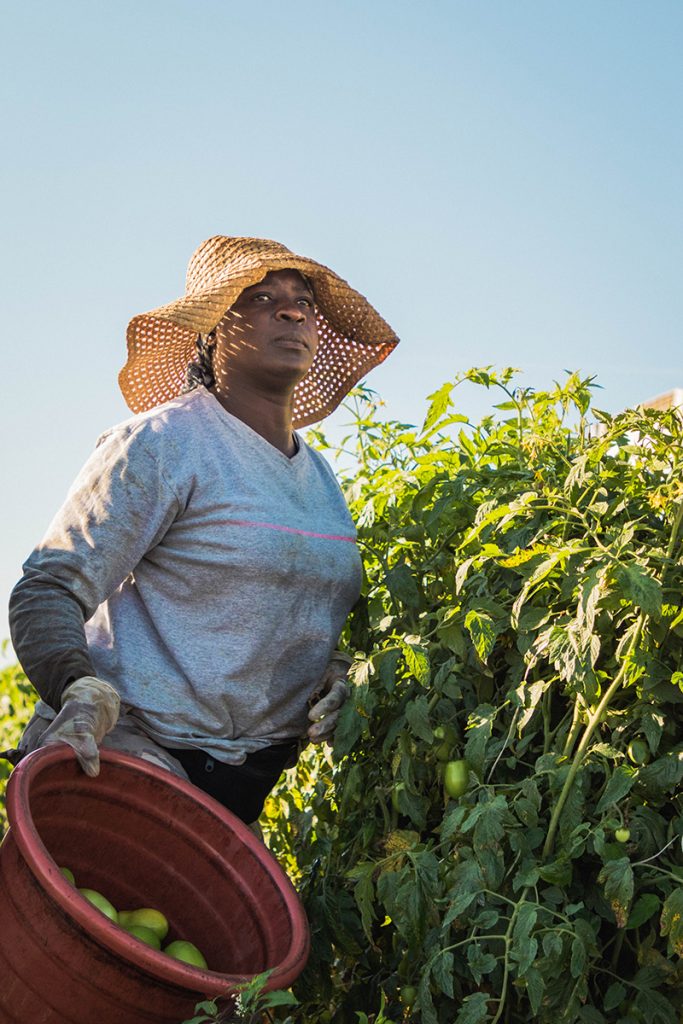 Journalist, author Bernice Yeung on the Fair Food Program as a tool to end sexual harassment in the workplace: “Because the workers themselves know that they are helping establish how the farm is being evaluated, that they’re one of many workers, they become the eyes and ears of the [Fair Food] Program. They know that they’re empowered to change the culture of [the company].”
Journalist, author Bernice Yeung on the Fair Food Program as a tool to end sexual harassment in the workplace: “Because the workers themselves know that they are helping establish how the farm is being evaluated, that they’re one of many workers, they become the eyes and ears of the [Fair Food] Program. They know that they’re empowered to change the culture of [the company].”
In the fall of last year, investigative journalist Bernice Yeung published her first book, titled In a Day’s Work: The Fight to End Sexual Violence Against America’s Most Vulnerable Workers, a powerful volume that encapsulates years of investigative work exploring the experiences of women facing sexual violence in the farm labor and janitorial industries. In addition to documenting the horrifyingly commonplace experience of sexual harassment, assault, and rape in some of the country’s least protected and lowest paid industries, Yeung highlights two principal beacons of hope: California’s janitorial workers campaigning for better legal protections for victims of assault at work, and, of course, Florida’s farmworkers and the CIW’s award-winning Fair Food Program.
Last month, Yeung sat down for an in-depth interview with the hosts of the podcast “Who Makes Cents,” a top economics podcast exploring the history and dynamics of today’s global economy. Today, we wanted to share a few highlights from the hour-long conversation – though definitely make sure to add the full version to your podcast queue!
Yeung starts off laying out in painful detail the contours of the problem itself, and exploring why low-wage working women are so vulnerable to sexual harassment and assault. To illustrate this point, Yeung shared one particularly grim story of the “math” that one worker had to do in order to determine whether or not she could afford to put in a complaint about the supervisor who was routinely harassing her during her night shift as a janitorial worker:
Having set the stage, Yeung then dives into the solutions she encountered over the course of her investigation, solutions that had emerged out of necessity from within the very communities grappling with this impossible zero-sum calculus of whether to defend one’s dignity and safety at work, or to put food on the table for one’s family. Just as Yeung zeroes in on the heart of why workers are so vulnerable in the first half of the interview – economic vulnerability, and the deep-seated fear of retaliation for speaking up – she similarly identifies the core element of the Fair Food Program that has brought about a complete reversal of this dynamic: the real and meaningful participation of workers in monitoring their own work environment.
“Because the workers themselves know that they are helping establish how the farm is being evaluated, that they’re one of many workers, they become the eyes and ears of the [Fair Food] Program. They know that they’re empowered to change the culture of [the company].”
In the full section of the interview on the Fair Food Program, Yeung goes on to underscore the profound changes brought about by the Fair Food Program, and provides an excellent in-depth summary of the mechanisms that have allowed the FFP to virtually eliminate sexual assault from the fields:
Interested in hearing more insight into the nationwide efforts to combat sexual assault in low-wage industries? Make sure to head over to the “Who Makes Cents” Podcast page to listen to the full interview with Bernice Yeung!
